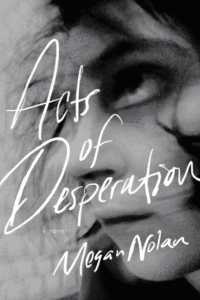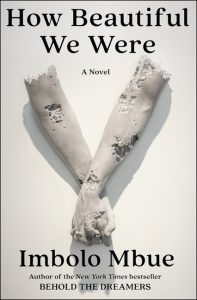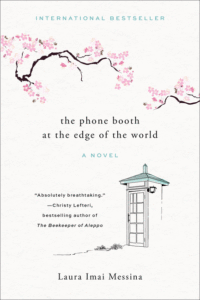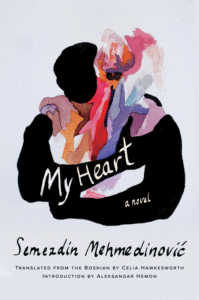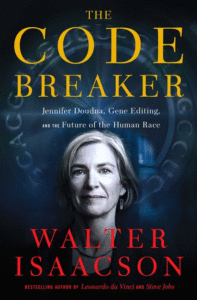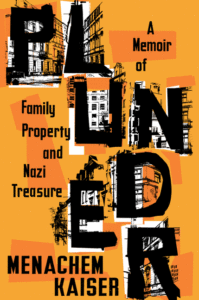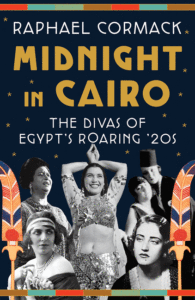Here are the best reviewed books of the week.
Megan Nolan’s Acts of Desperation, Imbolo Mbue’s How Beautiful We Were, Walter Isaacson’s The Code Breaker, and Michelle Nijhuis’ Beloved Beastsall feature among the best reviewed books of the week.
Brought to you by Book Marks, Lit Hub’s “Rotten Tomatoes for books.”
1. Acts of Desperation by Megan Nolan
(Little, Brown and Company)
9 Rave • 2 Positive
Read an excerpt from Acts of Desperation here
“Please believe the hype. Please do not roll your eyes and say ‘not another Sally Rooney.’ Nolan is not another Sally Rooney. She is another seriously exciting writer who happens to be young and female and Irish. Those are broad categories. Nolan’s book describes a very particular experience and it does so with rare intelligence and courage … The star feature of Nolan’s narration is her ability to cut through received ideas about women, relationships and even rape. We get the angry, vain, selfish woman as well as the supplicant, the self-harmer, the victim. We get a real person. Ciaran is sketched in less detail, but is still, impressively, seen in the round, never merely as the villain of the piece … Mostly I was transfixed with admiration and visceral horror. I knew a Ciaran once, and this novel is an extraordinary likeness—not of the man, but of the mechanism, the way you get from hopeful ‘hello’ to acts of degrading desperation. Nolan’s headlong, fearless prose feels like salt wind on cracked lips. You wince and you thrill.”
–Claire Lowdon (The Sunday Times)
2. How Beautiful We Were by Imbolo Mbue
(Random House)
5 Rave • 7 Positive
Read an excerpt from How Beautiful We Were here
“The novel’s reach could have easily exceeded its grasp, given the weighty themes and its span, but Mbue reaches for the moon and, by the novel’s end, has it firmly held in her hands … The novel is kaleidoscopic in design, but one girl, Thula, becomes perhaps the closest thing to a protagonist … But Mbue, gloriously, avoids the trap of depicting the Story of Africa as pure and unmitigated exploitation and slow-moving calamity. Some of the novel’s most thrilling sections are those that follow Thula as she fights to depose the dictator whose complicity has eviscerated her home … Though Mbue’s novel serves as elegy to a land lost, it is also a celebration of something less tangible gained, whatever it is that’s captured in the voice of a first-generation diasporic Kosawan asking their Big Papa or their Yaya to please tell them a story of the old country.”
–Tochi Onyebuchi (NPR)
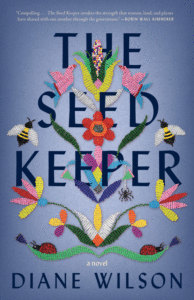
3. The Seed Keeper by Diane Wilson
(Milkweed Editions)
6 Rave • 1 Positive
“… moving and monumental … Epic in its sweep, The Seed Keeperuses a chorus of female voices to recount the intergenerational narrative of the U.S. government’s deliberate destruction of Indigenous ways of life with a focus on these Native families’ connections to their traditions through the seeds they cherish and hand down … the reader experiences an interwoven tapestry of oppression and resistance … Wilson opens her book with the poem The Seeds Speak, in which the seeds declare, ‘We hold time in this space, we hold a thread to / infinity that reaches to the stars.’ This novel illuminates that expansiveness with elegance and gravity.”
–Kathleen Rooney (The Star Tribune)
4. The Phone Booth at the Edge of the World by Laura Imai Messina
(Overlook Press)
5 Rave • 2 Positive
“… [an] astonishment. And while Imai Messina’s quiet, contemplative, and gripping tale is fiction, the story ultimately has its feet—and its heart—planted firmly in reality … Imai Messina’s story—musing on grief, hope, and joy—comes, then, at the perfect moment… Imai Messina unfolds how Yui and Takeshi form a friendship of shared experience—and then navigate the trickier shoals of a deeper relationship—in lyrical, unrushed prose that avoids sentimentality … These brief segments add rich detail to the novel without slowing down the storytelling … Such characters, and such a setting, risk tipping the tale into a depressing bog. Yet Imai Messina, like her story’s powerful wind, pushes these individuals forward. They question, they consider, and they take fresh steps.”
–Erin Douglass (The Christian Science Monitor)
5. My Heart by Semezdin Mehmedinovic
(Catapult)
4 Rave • 3 Positive
Read an excerpt from My Heart here
“… autobiographical without ever seeming confessional or succumbing to the egocentrism of so much autofiction … Though it deals with tragedy, My Heart is never depressing, partly because of the beauty of the language—expertly translated from the Bosnian by Celia Hawkesworth—and partly because of its depth and honesty of emotion, its intelligence and generosity of spirit, and the precision and originality of Mehmedinovic’s observations … powerful, at once profound and charming …”
–Francine Prose (The New York Times Book Review)
**
1. The Code Breaker: Jennifer Doudna, Gene Editing, and the Future of the Human Race by Walter Isaacson
(Simon & Schuster)
8 Rave • 2 Positive • 3 Mixed
“Coming in at nearly 500 pages, the book dives into the essence of life and the heady world of genomes and genetic coding, or what Isaacson calls ‘the third great revolution of modern times,’ following the atom, and the bit which led to the digital revolution. For the uninitiated—those folks who cannot tell their DNAs from RNAs—understanding this new frontier in science can be a bit daunting … Isaacson leans heavily on profiles to tell the broader story. In this case, he focuses on Doudna (pronounced DOWD-nuh) to explore the confluence of science, innovation, and ethics … Isaacson passionately charts Doudna’s swiftly rising star … But Isaacson also pays tribute to the many others who, in their own way, contributed to the understanding and development of gene editing, by weaving in compelling vignettes along with glossy photos of scientists and researchers. It’s a broad cast of characters, and at times the choice seems a bit random. But, ultimately, it helps create an understanding that these breakthroughs are not created in a bubble, it requires a patchwork of experiments and expertise over many years.”
–Jackie Northam (NPR)
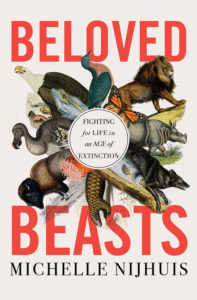
2. Beloved Beasts: Fighting for Life in an Age of Extinction by Michelle Nijhuis
(W. W. Norton and Company)
5 Rave • 2 Positive
Read an excerpt from Beloved Beasts here
“Nijhuis parses thorny social and ethical issues, while anchoring this exceptionally comprehensive and enlightening history of conservation to incisive profiles of many ardent and intrepid individuals devoted to protecting animals and their habitats … Nijhuis spotlights key moments in the evolution of ecological thought and practice inspired by the likes of biodiversity defender Edward O. Wilson, Nobel Prize–winning political economist Elinor Ostrom, and pioneering conservation biologist Michael Soulé. Along the way, she exposes the racism inherent in environmental decimation, chronicles the struggle to establish community-based conservation initiatives, and explains efforts to protect common species before they decline, introducing heroic contemporary innovators. Nijhuis has created a defining and invaluable chronicle of an increasingly urgent lifesaving effort.”
–Donna Seaman(Booklist)
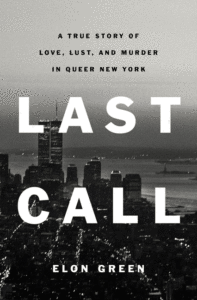
3. Last Call: A True Story of Love, Lust, and Murder in Queer New York by Elon Green
(Celadon Books)
2 Rave • 6 Positive • 1 Mixed
“Last Callis Green’s first book, and it admirably demonstrates his commitment to sidestepping easy sensationalism for the far grittier work of checking sources, poring over police reports and reinterviewing witnesses … Instead of focusing on the killer, Green opts to humanize his victims … With great compassion, he widens his scope to explore the social value of gay bars to the queer community and the vital work of grass-roots groups … Green proves a conscientious crime writer. He provides an adrenalized police-procedural plot without ever losing sight of the fact that these were innocent human beingswho were duped, butchered and discarded. We are never allowed a moment of perverse awe for the murderer. Ultimately, that strength is also the book’s weakness … Green acknowledges that Rogers, who is serving two consecutive life terms in prison, declined his attempts to interview him. That missing confrontation creates a fissure in his otherwise impressive reporting … More than once in the abrupt final chapters, in the midst of reading about him, I forgot the murderer’s name. But it is to Green’s credit that I never forgot the names of the four known victims.”
–Christopher Bollen (The New York Times Book Review)
4. Plunder: A Memoir of Family Property and Nazi Treasure by Menachem Kaiser
(Houghton Mifflin)
2 Rave • 3 Positive
“Menachem Kaiser’s Plunder: A Memoir of Family Property and Nazi Treasure tells a twisting and reverberant and consistently enthralling story. It’s a weird story that gets weirder … Kaiser is a reflective man on the page, with a lively mind. He dwells on the moral seesaw he finds himself on … Plunderhas many stories to tell … many moods and registers. It acquires moral gravity. It pays tender and respectful attention to forgotten lives. It is also alert to melancholic forms of comedy. Tonally I was reminded at times of Jonathan Safran Foer’s excellent first novel, Everything Is Illuminated… Traveling on a private road, closer to the ground, and at a slower pace, [Kaiser’s] walk turns up details that are fresh, unexpected and significant. His perceptions are sharp. We partake of his curiosity.”
–Dwight Garner (The New York Times)
5. Midnight in Cairo: The Divas of Egypt’s Roaring ’20s by Raphael Cormack
(W. W. Norton & Company)
1 Rave • 4 Positive
“…a unique, erudite history of the city’s sparkling cultural life from the late 19th century to its decline after the 1952 revolution … Drawing on memoirs, magazines, newspaper reports and archives, Mr. Cormack has built a riveting, lively picture of Cairo’s nightlife … Mr. Cormack’s evocative descriptions are packed with bizarre, quirky detail.”
–Moira Hodgson (The Wall Street Journal)




